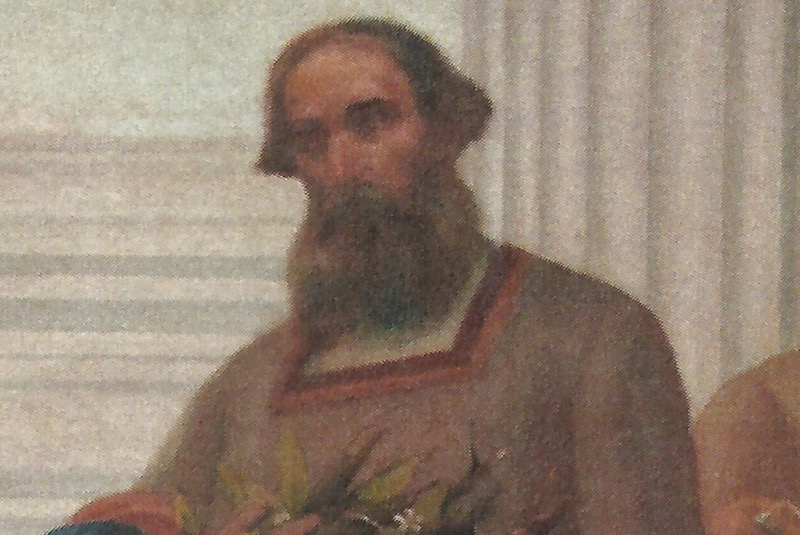It's very important to understand Goa's past, its politics and history, without placing it under a communal lens from current times

Till this day, the debate over colonialism continues in Goa, and different sections see themselves as being victims of the process. Some were, but not in a simple, clear-cut way. Last week, another discussion was triggered off. This came from the online discussion of Dr Shalva Weil on the topic of The Jews of Goa under the Portuguese.
Weil is from the Hebrew University of Jerusalem. She has focussed on a subject which has been quite hotly debated in the past too. That is, the relationship between Jews and the Portuguese Empire, especially in Goa.
Her talk was delivered on the online LockDownUniversity.org, a site which has a number of online archived talks, some focussing around Jewish themes. The few that focus on India might be of interest, or worthy of debate. Other Jewish communities in various part of India have also been focussed on.
She introduced her early July 2025 online talk, which a brief note that read: "There may have been early settlement of Jews in Goa, but there certainly was a Jewish colony there under the Portuguese. However, the Portuguese set up an Inquisition in Goa and tried many Jews and conversos or New Christians.
"They kept alive Garcia de Orta (1501-68), the physician of the king and a famous botanist, but burned his sister on the stake. By the 18th century the community of Jews had disappeared but their memory lingered on in some families to this day."
This opens up many issues. It is not only about history, but also has implications about Goa's present. After all, how we interpret the past will have implications on our present. What we see as justifiable today, and the policies that are implemented currently.
What one sees depends on where one stands, as they say. Then: if the mind does not know, the eye does not see. So, how do we interpret all these issues?
Portuguese bias and discrimination against the Muslims (especially during their early rule of Goa) who had been ruling Goa just prior to 1510 has been widely accepted and acknowledged.
There has also been documentation of their anti-Jewish policies for certain periods of the Empire (though prominent sections of the Jewish population also played a crucial role in propping up the colonial State at other points of its history). The anti-Hindu policies have been often commented on. But the faith-based politics of Medieval Europe can be a complex issue, which cannot be reduced to issues of black-and-white.
While tackling the same, it's important to avoid heading into several sweeping generalisations and conflating distinct categories in ways that can mislead. For instance, consider the points below.
Jewish colony: There is no substantial historical evidence of a formal, self-governing Jewish colony in Portuguese Goa akin to those seen in places like Cochin (today's Kochi), Cranganore (Kannur), or the Middle East.
Conflating “Jews” with “New Christians” obscures the reality: The Inquisition in Goa did not target Jews as a distinct ethnic or religious minority openly practicing Judaism. It did so, rather as Portuguese New Christians (converted Jews and their descendants) suspected of secretly maintaining Jewish practices. While their Jewish heritage did matter symbolically to the Inquisition, they were prosecuted within the framework of Christian heresy, not religious pluralism.
Garcia de Orta’s fate reflects complexity, not anomaly: Even assuming all we believe about the Inquisition is true (check out the writings of Alan Machado Prabhu on this score), Orta died in 1568. That was before the formal installation of the Goan Inquisition (1560s onward in practice, with full tribunals active by the 1570s).
This tragic episode does not suggest that the Portuguese decided their policies based on the individuals involved. But rather that the Portuguese policies kept changing, even dramatically, with time. It does illustrate how individuals of Jewish descent lived under intense suspicion, even decades after conversion at certain points of Portuguese history. In another recent discussion, someone made the point that, across history, Jewish populations were probably treated better in the Middle East, than in Europe (and its areas of influence).
Disappearance of the "community" was not solely due to persecution: The category had already been erased institutionally by conversion (sometimes undertaken under duress and pressure) and assimilation centuries earlier. Those of Jewish descent either assimilated fully into Christian society; migrated (possibly to Dutch or Ottoman territories); or were absorbed into the broader category of Luso-Goans.
The "lingering memory" claim needs caution: This is a plausible claim but it is difficult to verify without risking to fall into speculative theorising or retrospective identity construction.
One could argue that it's very important to understand Goa's past, its politics and history, without placing it under a communal or sectarian lens from current times. This could lead to a more honest and constructive engagement with Goa's complex and often-misunderstood past.
Everything can't be reduced to binary frames: Hindu vs. Catholic, Jewish versus Portuguese, Indian versus Luso realities. For that matter, even Goa's politics since the 20th century was shaped much more by language (Konkani vs Marathi), class (bhatkar vs mundkar), caste ("upper" versus "lower"), even region (North vs South) rather than simple religious binaries.
A more careful approach could help to hold colonialism accountable, minus romanticism or hatred. Above all: misreading the past can lead to misdiagnosing present challenges.